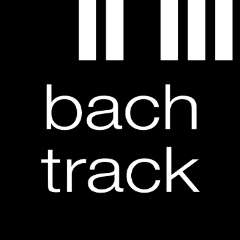It's now three months since I was given a copy of the Wihan Quartet's new 3-CD set of Beethoven's late String Quartets to review. It's the longest I've ever spent before doing a review, and more than somewhat embarrassing. But I plead good excuse.On the scale of effort demanded from the listener, the Beethoven late quartets are situated somewhere close to the polar opposite of "easy listening". The music is often dense, sometimes very complex, and always subtle. It requires your full attention, and needs to be listened to repeatedly: on a fifth and sixth hearing, I still find things in the music I haven't heard before. In the clichéd view of a nicely dressed string quartet playing background music for an elegant upper-class reception, you can be certain that this isn't the music they're playing.To make sense of it all, I decided to focus on just one of the five quartets in the set, the Op.130, the quartet I know best, the longest and one which I've heard the Wihan Quartet play live. The sense I get from this recording is that they have put a tremendous amount of effort into every note. Each phrase in the music is rich in possibilities for how to interpret it - different dynamics, emphasis, phrasing, sense of pace and movement. Throughout, I feel like I'm being led on a journey by someone with a phenomenal understanding of the place that I'm visiting: the quartet never put a foot wrong (astonishing, given that it's a live recording), and achieve a high level of clarity.The journey goes through many textures and moods. The first movement is by turns thoughtful, light-hearted, quizzical, stern, delicate, nostalgic: each mood is conjured up by a subtle variation on one of a handful of main themes. The second is puckish fleet-footed quicksilver, the third a gentle, elegant stroll with occasional pauses for thought, the fourth a lilting country "German dance" in three-time, the fifth (the famous "Cavatina") an expression of pure yearning.Both live and on this CD, the Wihan Quartet play the original last movement (later published as the Grosse Fuge, Op.133), discarding the replacement last movement which Beethoven wrote when the fugue proved too avant-garde for the audiences of the time. It's an extraordinary work: urgent, manic, desperate. Above the other movements, this bears repeated listening, with the complexity of the interwoven tunes becoming a little more evident at each time. In this recording, every shift of mood and emphasis is clear, with a continuing sense of forward movement amongst the chaos.There are a couple of aspects of the recordings that I should mention. Firstly, they are live recordings, and very much so. The performers' breathing is clearly audible, and no attempt has been made to take out the occasional cough and splutter from the audience. You may like this as providing real concert atmosphere, or you may find it intrusive. Secondly, this isn't the sweetest-toned recording you can buy: there are other recordings played on instruments by Stradivari and the like which achieve warmer, smoother string tone.All in all, however, this CD set is an extraordinary investment: it's music that you can listen to again and again, learning something every time under the guidance of musicians who are masters of this craft. It's a thoroughly rewarding experience: just be prepared to invest a generous chunk of your time and attention to get there.


